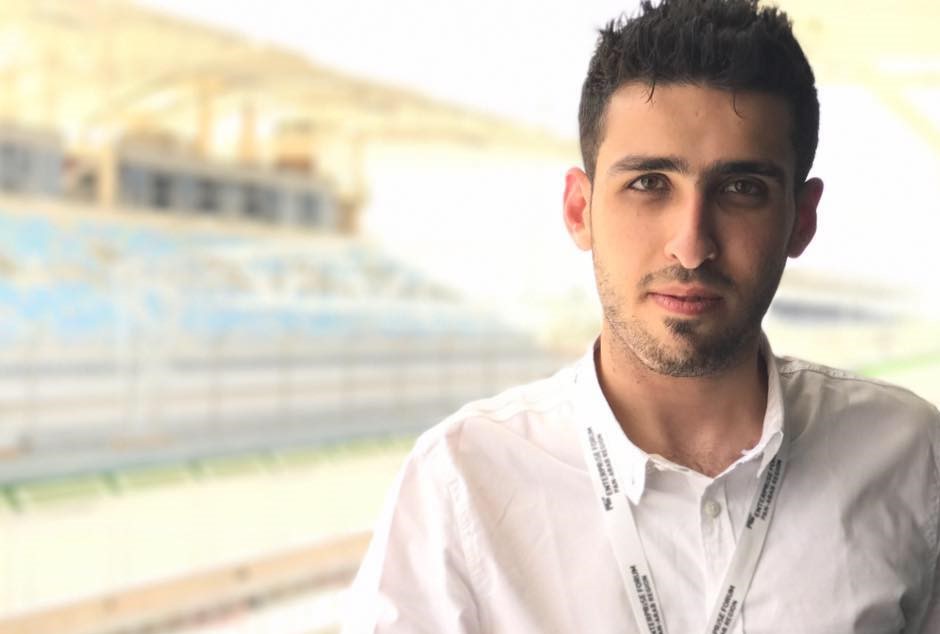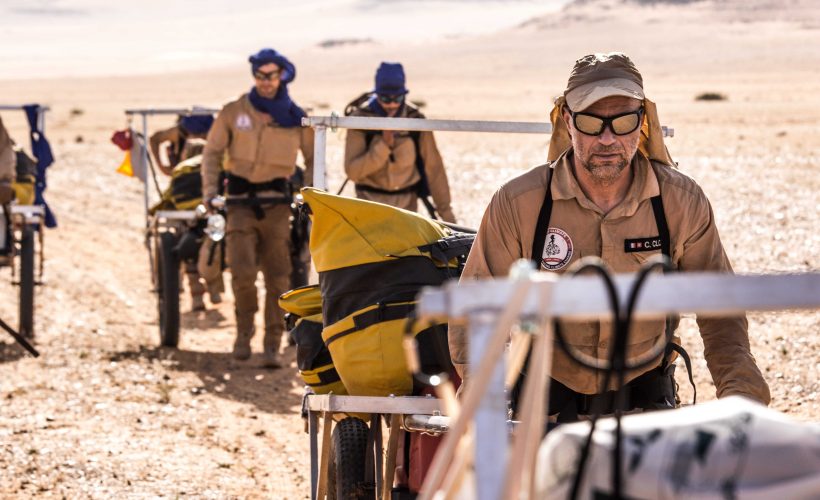Tech & Business
7.9.2019
Sami al Ahmad, a Syrian entrepreneur who helps Arab students study abroad

Sami al Ahmad is a young Syrian entrepreneur who, three years ago, launched Marj3, a start-up that helps Egyptian students to find scholarships for studying abroad. Today, the platform generates more than 2 million visitors a month and has already helped more than 70,000 students find scholarships. Success for this former student in dentistry, a refugee in Egypt for only 7 years.
Selected start-up of the year 2018 at the Global Forum of Entrepreneurs in Cairo, Marj3 has distinguished itself by the social impact it has created on the local community. It started from the personal experience of Sami al Ahmad, his co-founder when he moved to Egypt in 2012. While he wanted to pursue his studies, he quickly faced the lack of information available online regarding administrative procedures to follow. He decided to transform this obstacle in a challenge by launching a website facilitating information access for young Syrians regarding Egyptian university education. Three years later, the young entrepreneur decided to go further and expand this help to other students from the Arab world who wish to study abroad, such as Egypt or Iraq. We met him to discuss with him about this entrepreneurial journey:
Your Facebook page says you studied to become a dentist in Damascus, then in Cairo. What brought you into entrepreneurship?
Before the outbreak of the Syrian civil war, I was studying in Damascus to become a dentist. When I moved to Egypt in 2012, I wanted to continue my studies but I found very little information on the Internet. In parallel, many of my friends in Syria contacted me to ask me for information to come studying in Egypt. I wanted to help them by creating a unique service and while doing my researches, I soon realized that there were many sites to assist with accommodation and housing but very little in the field of education. That’s when the idea of creating Khatwa came up: a platform to help Syrians gain access to Egyptian university education. As I learned to code when I was young, I created the website myself. Originally, it was a very small website, which mainly served as technical support for all the administrative questions related to studies in Egypt. After one year, I applied for a US-based Syrian Youth entrepreneur contest (Jusoor), and we won a prize for an international program. It was really the beginning of my career as an entrepreneur because it was the time I really started being interested in this ecosystem.
How was Marj3 born and what is its main goal?
After three years as CEO of Khatwa, I realized that the lack of information about education was not only Syrian. Many students from other nationalities, especially in the Arab world, seek to study abroad but find it difficult to gather the proper information. By creating Marj3 in 2016, I wanted to set up a platform that responds to this need by aggregating all the different opportunities of scholarships and study programs in the world. But as I wanted a bigger and more ambitious project than the previous one, I needed some help and this is why I have two Egyptian co-founders with me: Abdullah Samy and Ahmed el-Gebaly, both of whom had experience in projects related to education before.
What were the biggest challenges during the different stages of Marj3 creation?
Our main challenge was to find the right business model, and how to create the best way to generate revenue in this field. Eventually, we managed to pass this challenge.
How much are you in the team today?
We are now the largest start-up in the MENA region to offer such learning and development opportunities, as we have developed a huge database with more than 7000 scholarships available. Our team consists of 3 co-founders, 10 employees and approximately 174 trainees spread across 13 countries.
popular

